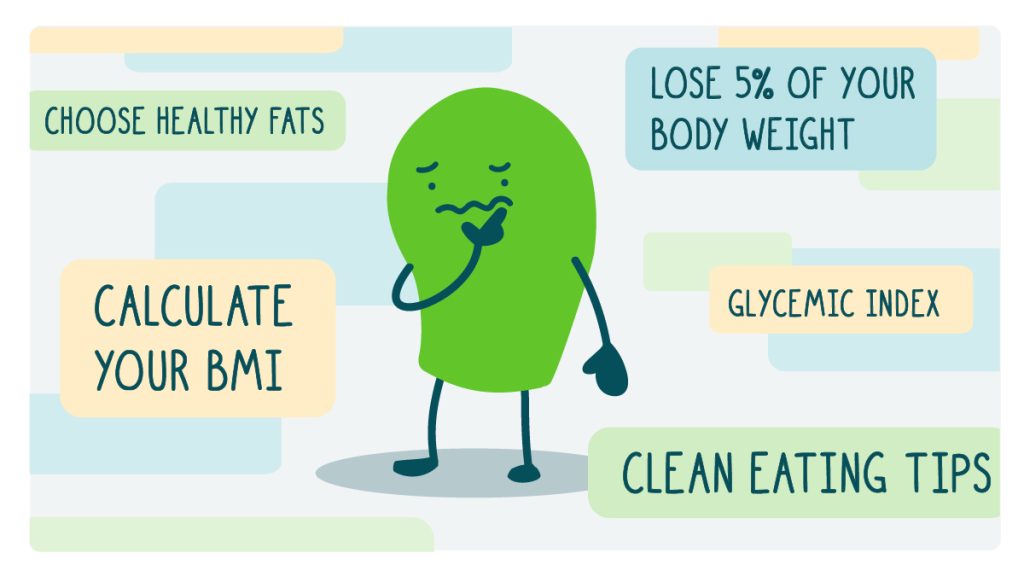
Talking about weight has never been easy. We knew that back in 2017 when we first brought you these tips for writing about weight, but the conversation feels more loaded than ever in 2024. More and more people are questioning old assumptions as we recognize the harms of medical weight bias and flawed metrics like the body mass index (BMI). Meanwhile, medicines like Ozempic are changing the conversation about obesity. How can health communicators navigate this tricky topic? While we certainly don’t have all the answers, we’ve got some ideas.
Focus on action steps, not the scale. Habits like eating a variety of healthy foods, staying physically active, and getting plenty of sleep can improve people’s health even if those habits don’t lead to weight loss. By focusing on action steps rather than weight, we can boost our audience’s self-efficacy and avoid alienating readers who dread weight loss talk. Depending on the context, it could make sense to leave weight out of the conversation altogether. If you do mention weight loss, give specific, evidence-based tips and emphasize that even a relatively small loss can have big health benefits.
If you’re recommending weight loss, give people a good reason why. Over the past few years, many people have started to think critically about the relationship between weight and health. So if you’re encouraging readers to lose weight, ditch subtle hints and make your call to action explicit. Spell out how losing weight can help your audience improve their health. Build trust by citing scientific evidence — and be honest about what experts know and don’t know.
Acknowledge the complexity of weight. Our genes, environment (hello, social determinants of health!), and behavior all have a role to play in regulating our body weight. Naming those complex factors is one step toward reducing blame and shame. Speaking of complexity, remember that everyone interprets weight messages through the lens of their own experience — which may include weight stigma, dieting, body acceptance, disordered eating, cycles of weight loss and regain, and more. So when you’re writing about weight, it’s especially important to show your audience that you see them.
Make your guidance accessible. Consider how disability may shape your audience’s perspective on nutrition and physical activity guidance. For example, most adults have heard that they should eat more vegetables, but that advice isn’t super actionable for people who struggle with the texture of veggies because of sensory issues. Thinking beyond disability, advice on making time to work out may sound totally out of touch to a busy single parent. Taking time to learn about your audience’s needs and provide accessible suggestions — like sensory-friendly recipes or creative ways to get active with the kids — can go a long way.
Talk about what happens after weight loss. We’re all about empowering our audiences with a sense of agency. But it’s also important to be realistic about the fact that many people who lose weight will later regain it, in large part because of biological processes we can’t control. Experts are still working to find effective solutions, and time will tell how medicines like Ozempic may change the equation. In the meantime, we can strike a balance by acknowledging the challenges of weight maintenance and suggesting practical ways to try to prevent regain, like building consistent eating habits.
The bottom line: When we’re communicating about weight, it’s especially important to lead with empathy and transparency. By meeting people where they are, we can empower them to make informed decisions about their weight and their health.
Copy/paste to share on social (and tag us!): How can health communicators write about weight with empathy and transparency? CommunicateHealth has some ideas: https://communicatehealth.com/wehearthealthliteracy/what-to-say-about-weight/ #DEI #HealthComm #HealthLiteracy
Browse recent posts